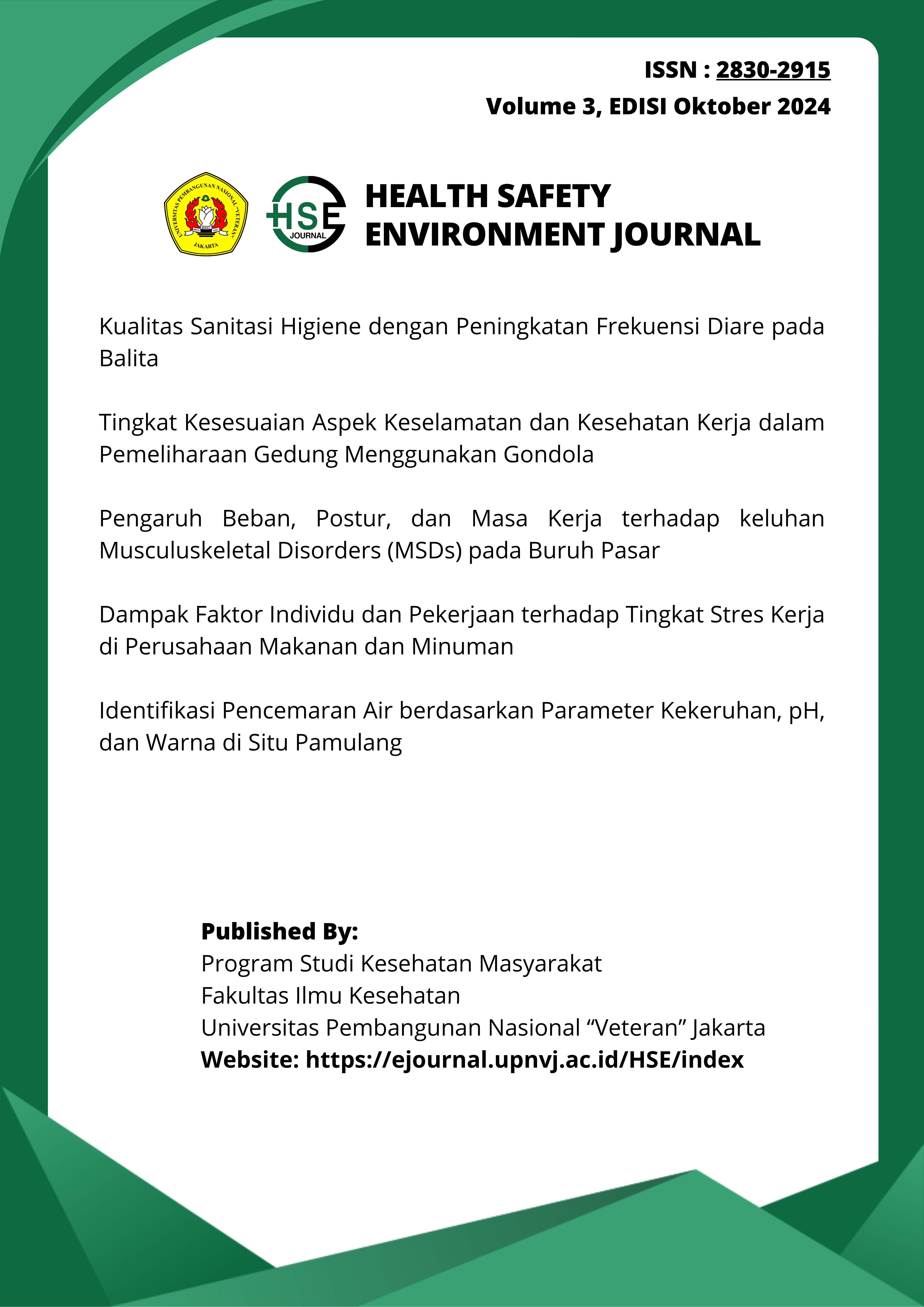Effects of Workload, Posture, and Tenure on Musculoskeletal Disorder (MSDs) Among Market Logistic Workers
Abstract
Background: One type of job at risk of musculoskeletal disorder MSDs is manual handling laborers who rely on their bodies as a means of carrying loads. The complaints experienced are chronic in nature, with effects caused by damage to muscles, joints, and ligaments, resulting in discomfort, pain, and functional impairment. This research aims to determine the relationship between workload, work posture, and tenure with musculoskeletal disorder (MSDs) complaints among manual handling laborers in the Segiri Market of Samarinda City.
Methods: This study is quantitative research using an analytical observational method with a cross-sectional design. The sample in this study consisted of 42 manual handling laborers from Segiri Market. Data analysis was conducted using the Pearson Product Moment correlation test.
Result: The research results indicate a significant relationship between workload and MSDs complaints (p-value 0.037) with a weak correlation (R of 0.323). There is a significant relationship between work posture and MSDs complaints (p-value 0.034) with a weak correlation (R of 0.328). There is a significant relationship between tenure and MSDs complaints (p-value 0.001) with a strong correlation (R of 0.508). that only father’s income was significantly related to students’ interest in continuing their education to college (p=0.032).
Conclusion: The existence of a relationship between workload, work posture, and tenure with MSDs complaints among manual handling laborers in the Segiri Market.
Keywords: transport workers, MSDs, NBM, REBA
Downloads
Published
Versions
- 2024-10-31 (2)
- 2024-10-31 (1)





